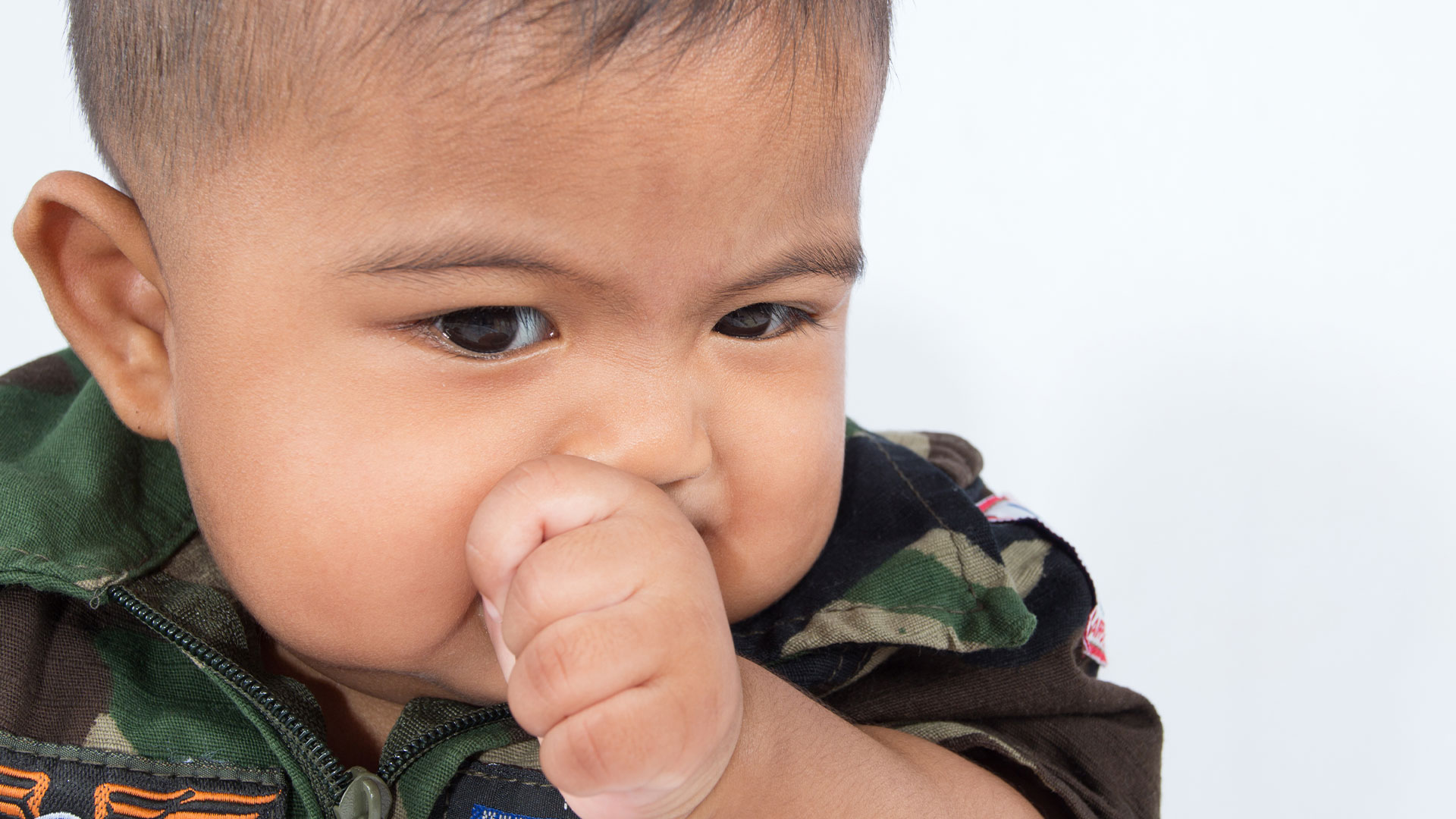

Have you ever wondered why babies put everything in their mouths? The answer is quite simple. Oral exploration represents a critical developmental stage in a baby's life. While parents need to monitor what their baby is doing and protect them from potential harm, it's perfectly normal to watch an infant grab an object and put it in their mouth to get a sense of its texture and taste.
vIn addition to exploring the world with their mouths, babies also find comfort sucking a thumb, finger, or pacifier. However, as a baby matures and develops increasing self-control and self-awareness, the prevalence of these habits should decrease. In fact, most children will give up these activities between 2 to 4 years of age.
Parents are advised that if their child's thumb, finger, or pacifier habit is still present when the permanent teeth are coming in, there is a greater chance of developing a bad bite. In other words, if the activity has not ceased by the age of five or six, it's time to help your child stop the habit in a constructive and supportive way.
It's a good idea to have our office check if any habit-related effects to the alignment of your child's teeth or jaws have occurred and if these changes affect their speech or other oral functions.
In addition to performing an evaluation, our office will discuss habit control strategies with you. We'll also follow your child's bite and facial development as they grow and make recommendations if and when any interceptive or corrective orthodontic care is needed.
We offer low-interest financing through CareCredit.